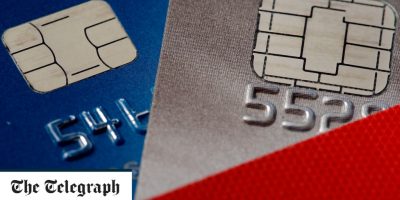The unstoppable advance of the digital age has created many new ways to pay but, at the same time, unleashed confusion and controversy over our consumer rights.
When Dexter Jeffrey, a 43-year-old music producer, came across a high-return gold investment proposition being marketed in 2014, he was initially sceptical. After several conversations by phone and email he decided to go ahead with the investment.
“I have lost money in the past and so I was wary and had my doubts,” said Mr Jeffrey. As an extra layer of protection he decided to invest the money via a credit card: making multiple payments and clearing the card balance from his banked savings.
“I was careful and wanted to protect myself so I asked to pay the deposit with a credit card. Usually, if you asked this you’d never hear from fraudsters again, but these guys said yes. This convinced me that they were genuine,” he said.
Credit:
Asadour Guzelian
Later, Mr Jeffrey received a call from the police informing him that the scheme he had paid into was suspected of being a scam. He contacted the firm and asked for his money – and they went quiet. “The returns that were supposed to come through, needless to say, never did,” said Mr Jeffrey.
Then came the blow. He made a claim with MBNA, his credit card company, but this was rejected as it said he had paid with PayPal.
Consumer group Which? has discovered a number of cases, including Mr Jeffrey’s, where the legislation designed to protect the consumer has failed.
For a Section 75 claim to be successful, there has to have been a direct connection between the “debtor” (the person paying), the “creditor” (credit card company) and the “supplier” (the business). Once a third party, such as PayPal, is involved, it could invalidate a claim.
But Mr Jeffrey paid using a service called PayPal Here, which is a card reader payment similar to that used in shops. This satisfies the technical criteria for section 75. After contacting the Financial Ombudsman Service (FOS), his claim was successful.
MBNA apologised for the confusion, saying it was the first time a customer had made a claim after using PayPal Here. The company repaid the £35,000 plus the interest that Mr Jeffrey could have earned.
He said it was important that customers know how to protect themselves before they make any major purchases. “I made sure I was covered as much as I could be,” he added.
Know your rights
Section 75 can protect you when something goes wrong with your purchase, as long as you made the payment, between £100 and £30,000, on a credit card.
Multiple transactions – such as those Mr Jeffrey made – are covered separately. Additionally, you do not have to make the whole purchase via credit card to be covered for the whole purchase. The Section 75 claim relies on the debtor-creditor-supplier link being unbroken; therefore, consumers have had claims turned down when paying through a third party, which has included PayPal, or an intermediary such as Expedia.
This can sometimes be difficult to determine at the point of payment, and credit card companies also get it wrong, as in Mr Jeffrey’s case. Claims can be so exceptionally complicated that, without legal training, the terms and conditions become impenetrable. Even where the transactions were relatively straightforward, claimants might discover that card firms dragged their feet or rejected claims at first, as several cases involving Telegraph Money readers have shown.
If you do not agree with your credit card company’s decision you can seek help from the FOS, which will investigate and determine your case. It was only after referring his case to the watchdog that Mr Jeffrey was able to convince MBNA to pay up.
The Financial Ombudsman Service (FOS) is there to help, but consumer group Which? says it could be clearer. Faye Lipson said: "It will shock many shoppers to learn that a technical detail about how your payment arrived in the retailer’s account can dictate whether a Section 75 claim will succeed.
"More troubling still is the fact that it’s often hard to tell at the point of purchase whether the way your payment is handled will invalidate the protection. A law designed to protect consumers is failing completely, and that’s simply not good enough."
The FOS can be contacted on 0300 123 9 123 or online at www.financial-ombudsman.org.uk
























Comments